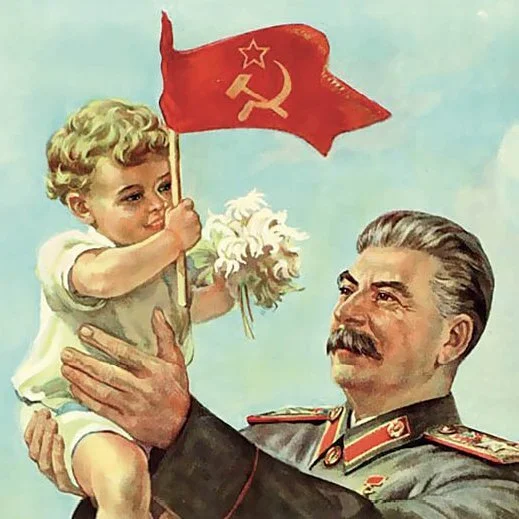- cross-posted to:
- parenting@lemmy.ml
- cross-posted to:
- parenting@lemmy.ml
A neat little anthropological piece contrasting child rearing strategies in hunter gatherer and industrialized societies. The piece seems to suggest that indigenous cultures teach unalienating forms of human relation, organizing, and mutual aid to toddlers; things that socialist orgs in capitalist societies struggle to teach adults. It sort of confirms my and Engel's suspicion that communist behaviors are natural and that we spend our lives unlearning them in order to become part of the armies of labor. Highlighting some quotes I found interesting:
From a young age, children freely explore their environment and spend much of their day outside in unstructured and unsupervised play or work.
Among the Pumé—hunter-gatherers living on the savannas of south-central Venezuela who my husband, graduate students, and other colleagues have periodically worked with since the 1990s—children spend many hours away from camp playing (27 percent of their day) and foraging (11 percent of their day). Boys typically fish and hunt for small game such as rodents, birds, or lizards, while girls gather fruit and firewood, dig for roots, and carry water from nearby streams to camp.
Two points highlight the contrast in children’s lives between these very different worlds: Hunter-gatherer children spend much of their time working and playing in mixed-age groups without adult supervision, and they are seldom taught through direct instruction; rather, they learn by doing. :mao-wave:
The takeaway from these examples is that in work, as in play, Pumé and Maya children are most often in one another’s company in mixed-age groups—watching, learning, teaching, setting their own rules, and figuring out their own social order.
My research has shown that Maya children under the age of 16 spend only about 1.8 minutes per day being instructed by a parent or adult. Pumé children ages 3–18 spend less than 1 minute per day being instructed. Other work elsewhere makes much the same point: Among the Tsimane (South American horticulturalists), adults spend less than 1 minute per day in child-directed speech.
Young children are also given a striking amount of latitude to make many of their own decisions. For example, on one memorable occasion, I was going house to house to get Maya parents’ signatures for their children to take part in a growth study. (Universities and granting organizations require that researchers obtain permission from children’s parents.) One parent looked at me and said: “Why are you asking me, why don’t you ask my daughter?”
What children learn from their peers is how to establish social order: organize among themselves, share responsibilities and rewards, engage in healthy competition, and develop the capacity for tolerance, coordination, and personal initiation. In short, how to become a successful participant in society.
They also learn to regulate their emotions and what is acceptable social peer behavior. Many anthropologists anecdotally remark that they rarely see a child throw a tantrum. Children fuss when they are being weaned, but once they can walk and start keeping the society of other children, it’s unusual for kids to have an outburst if they can’t get what they want. Once a colleague brought her toddler to the field, and while the little girl was quite advanced in knowing her letters and numbers, the Maya children she played with were dumbfounded when she would scream if asked to share a treat or toy with the other kids.
Anglo Adult: Throwing a tantrum over tendies is cool and normal.
A literal 5 year old indigenous child: :mao-wtf:



I think it would need to be re-designed at the adult-level first. One thing the article stresses is the fluidity children have with adult society. In the west we build toy worlds for kids, but historically playgrounds were at least partially built and regularly modified by kids, and the manufacturers grifting money off the concept came later until we got the empty plastic monuments we have now. Kids build their own toy worlds to learn about the adult worlds they observe. If there is no adult world to observe then they have no point of reference.
So imo, getting to the point where we could treat children this way would require having a communistic living situation irl. But that's not exactly realistic a lot of the time. And there's the temptation to build kibbutz-style communes but that system wasn't very successful and had a lot of odd effects on people, and in the west these "eco villages" tend to end up being white/middle-class projects.
One thing to worry about, too, with less supervision is the potential for child abuse, but this could be rectified by ensuring strong friend groups don't allow people to be isolated enough to get caught up in that sort of thing.
Everything good is predicated on abolishing capitalism first, it feels like. But that doesn't mean we couldn't meaningfully overhaul the capitalist education method in the meantime and stop traumatizing kids - stop tying kids' self worth to a letter they get based on how well they conform to Calvinist work ethic, and stop tying school budgets to how well a sample of their students answer an arbitrary battery of questions, and you'd fix a lot.
Re: playgrounds - I think the "empty plastic monuments" thing might be an America-specific phenomenon. I remember when I visited family in Germany there a ton of playgrounds that seemed like they were designed in the 1890s and then just maintained as-is ever since. Climbing walls, ziplines, exercise equipment, fountains - the playgrounds were explicitly part of the parks that they were in and had stuff for both kids and adults, they were great. This one community pool/park in particular charged an entry fee (I think it was 3 euros per person for non-members) and had a giant metal waterslide and trampolines that were embedded into the ground (so if you fell off you'd land in the grass).
I mean, if Republicans gut the public education system any further you could get mutual aid groups doing collective homeschooling in a weird mirroring of Evangelicals.